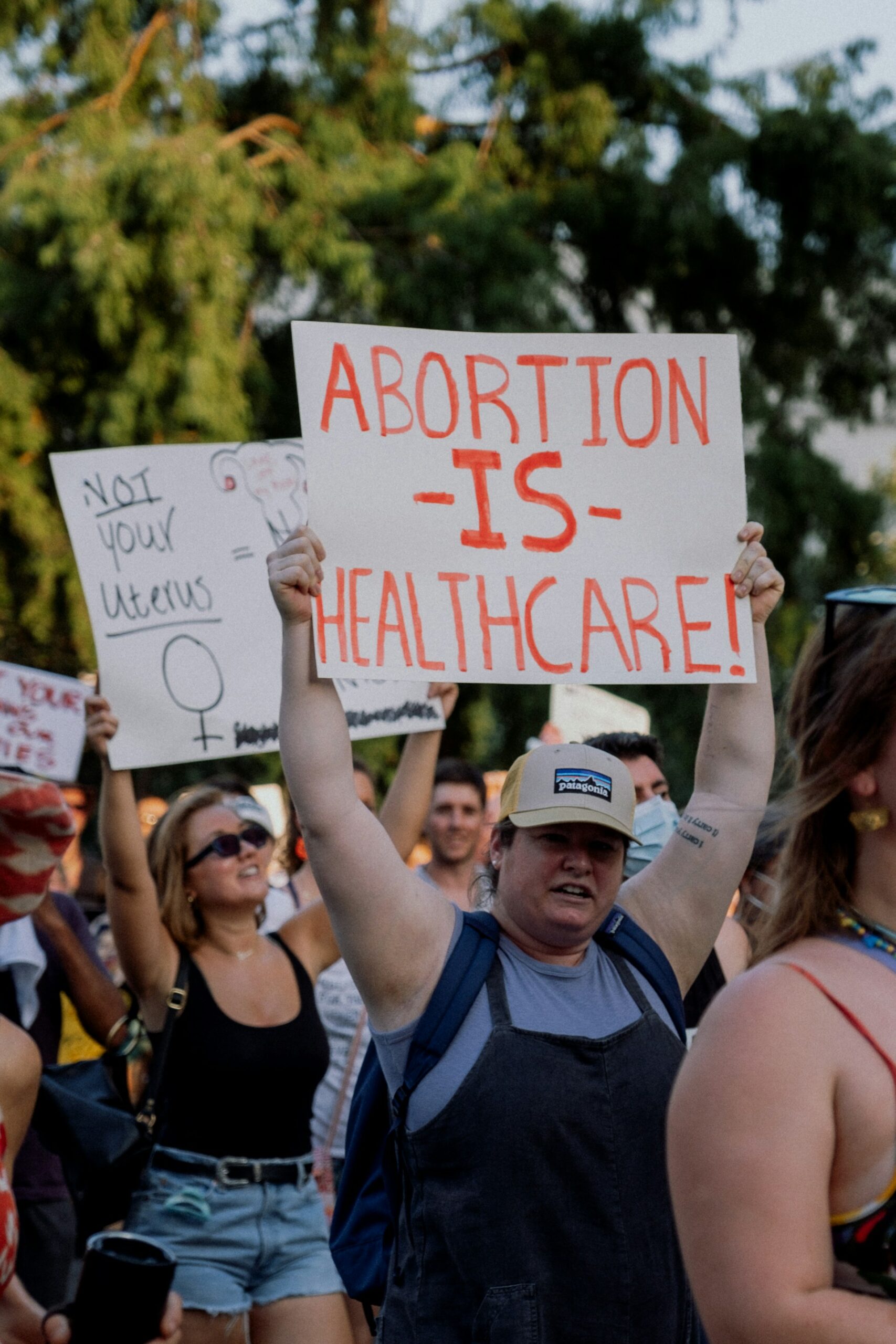Long-Term Health Outcomes of Obesity: Risks, Solutions, and Actionable Guidance

Photo by Nappy on Unsplash
Understanding the Long-Term Impact of Obesity
Obesity is a complex condition that exerts a profound influence on health over the lifespan. Extensive research demonstrates that both childhood and adult obesity significantly increase the likelihood of developing chronic diseases, reduce life expectancy, and contribute to substantial economic and social challenges. Addressing obesity early and effectively can positively alter long-term outcomes, yet many individuals and families may be unsure how to access the resources or support necessary to make meaningful changes.
Physical Health Risks Associated with Obesity
Obesity is strongly linked to a range of
chronic diseases
and life-threatening conditions. According to the Centers for Disease Control and Prevention (CDC), adults who have obesity face higher risks for
stroke
,
many types of cancer
,
premature death
, and mental health conditions such as clinical depression and anxiety
[3]
. Children with obesity are more likely to develop high blood pressure, high cholesterol, type 2 diabetes, asthma, sleep apnea, joint problems, and gallbladder disease. Importantly, childhood obesity also increases the risk of remaining obese as an adult, compounding these health risks over time
[3]
.
Recent studies have reinforced these findings. A 2025 cohort study published in JAMA Pediatrics found that effective treatment of pediatric obesity-meaning significant weight reduction-was associated with lower rates of type 2 diabetes, dyslipidemia, and hypertension in young adulthood. Moreover, successful intervention may reduce the risk of premature mortality later in life [1] . However, the study also noted that while physical health outcomes improved, risks for adult depression and anxiety were not directly affected by obesity treatment, indicating the need for integrated approaches to care.
Cardiovascular Disease and Diabetes: The Core Risks
Obesity is a primary contributor to the development of
cardiovascular disease
and
type 2 diabetes
. The National Institute of Diabetes and Digestive and Kidney Diseases (NIDDK) reports that nearly 90% of individuals with type 2 diabetes are overweight or obese. Elevated blood glucose over time can result in heart disease, stroke, kidney disease, nerve damage, and vision problems. Losing even 5% to 7% of body weight can lower the risk of developing diabetes and its complications
[4]
.
Cardiovascular risk is especially pronounced in individuals with persistent obesity from childhood through adulthood. A longitudinal study published in the European Heart Journal found that those who remained obese or whose obesity worsened over time had much higher rates of heart disease, diabetes, high blood pressure, and cholesterol issues. Conversely, children who lost excess weight by their twenties experienced significantly improved heart health and reduced risk of adverse cardiovascular events [2] .
Mental Health and Social Consequences
Beyond physical disease, obesity is linked to
mental health challenges
and
social problems
. Children and adults with obesity are at increased risk for depression, anxiety, low self-esteem, and reduced quality of life. Social stigma and bullying can further exacerbate these issues, sometimes leading to decreased academic or work performance and difficulties in social relationships. While physical health interventions can mitigate some risks, comprehensive care-including psychological support-is often necessary to address the full spectrum of consequences
[3]
.
Obesity-Related Complications and Reduced Life Expectancy
Obesity can lead to reduced life expectancy, primarily due to increased risks for
cardiovascular diseases
(e.g., myocardial infarction, stroke), type 2 diabetes, and certain cancers. Obesity also raises the risk for breathing problems, osteoarthritis, fatty liver disease, and metabolic syndrome
[5]
. These complications develop over years and often require ongoing medical management, further emphasizing the importance of early intervention and sustained lifestyle changes.
Economic Impact and Societal Challenges
The societal costs of obesity are substantial. The CDC estimates that annual medical care costs related to obesity in the United States exceeded $173 billion in 2019 [3] . Productivity losses due to absenteeism and decreased workplace performance total billions more each year. These economic burdens affect employers, families, and the broader healthcare system.
Actionable Steps for Prevention and Intervention
1. Early Detection and Treatment
Early recognition of excess weight in children and adults is crucial. Pediatricians, primary care physicians, and school nurses can provide screening and guidance. If you are concerned about weight-related health risks, schedule a wellness visit with your healthcare provider. Ask specifically about BMI, waist measurement, and risk factors for diabetes and heart disease.
2. Accessing Weight Management Programs
Many hospitals, clinics, and community organizations offer medically supervised weight management programs. To find a program in your area, consider:
- Contacting your primary care provider for referrals to registered dietitians or specialized clinics
- Searching health system websites for “weight management” or “obesity treatment” programs
- Exploring resources through the CDC’s obesity prevention initiatives or the NIDDK
If you have insurance, consult your plan’s benefits guide or member portal to identify covered options. Some plans cover nutrition counseling, behavioral therapy, or medical interventions for obesity-related conditions.
3. Lifestyle Changes and Support Networks
Effective weight management often requires a combination of dietary changes, increased physical activity, and behavioral support. Steps include:
- Setting realistic goals for weight loss with professional guidance
- Adopting a balanced, nutrient-rich diet-registered dietitians can help create tailored meal plans
- Incorporating regular physical activity appropriate to your health status
- Participating in group support or counseling sessions to address psychological barriers
Family involvement is especially important for children and adolescents. Schools and community centers may offer programs focused on healthy eating and active living.
4. Medical and Surgical Interventions
In some cases, medical or surgical interventions may be indicated, particularly for individuals with severe obesity or obesity-related complications. These options include prescription medications, metabolic or bariatric surgery, and close monitoring by a specialized healthcare team. If you wish to explore these options, request a referral from your doctor to an accredited obesity treatment center. Be sure to verify the credentials of any facility or provider before starting treatment.
5. Addressing Mental Health and Social Support
Because obesity often coexists with mental health issues, it is important to seek psychological support when needed. Licensed clinical social workers, psychologists, and counselors can provide therapy for depression, anxiety, and self-esteem concerns. If bullying or social stigma is an issue, work with school administrators, workplace supervisors, or advocacy organizations to address discrimination and promote inclusion.
Alternative Approaches
If traditional medical programs are unavailable or inaccessible, consider the following alternatives:
- Online support groups and telehealth counseling for weight management
- Community-based initiatives, such as walking clubs or nutrition workshops
- Mobile apps that track food intake and physical activity
Many local public health departments and nonprofit organizations run free or low-cost programs-search for “community obesity prevention” or “healthy living” programs in your city or county.
Key Takeaways and Steps Forward
Obesity is associated with significant long-term health risks, but early detection, effective treatment, and comprehensive support can change the trajectory. If you or a loved one faces obesity-related challenges, take these actionable steps:
- Schedule regular health screenings for weight and related risk factors
- Seek guidance from healthcare professionals and registered dietitians
- Utilize community and online resources for support and education
- Engage in physical activity and healthy eating as a family or group
- Address mental health needs with appropriate professionals
For verified information on prevention, treatment, and resources, visit the CDC’s official obesity page, NIDDK’s weight management portal, or ask your healthcare provider about local programs. Always verify the credentials of any service or provider before enrolling.

Photo by Towfiqu barbhuiya on Unsplash
References
- [1] JAMA Pediatrics (2025). Effect of Pediatric Obesity Treatment on Long-Term Health.
- [2] CardioSmart (2018). Understanding the Long Term Effects of Childhood Obesity.
- [3] CDC (2023). Consequences of Obesity.
- [4] NIDDK (2023). Health Risks of Overweight & Obesity.
- [5] Diabetes, Obesity and Metabolism (2025). An overview of obesityâ€related complications.
MORE FROM promohunterpro.com













